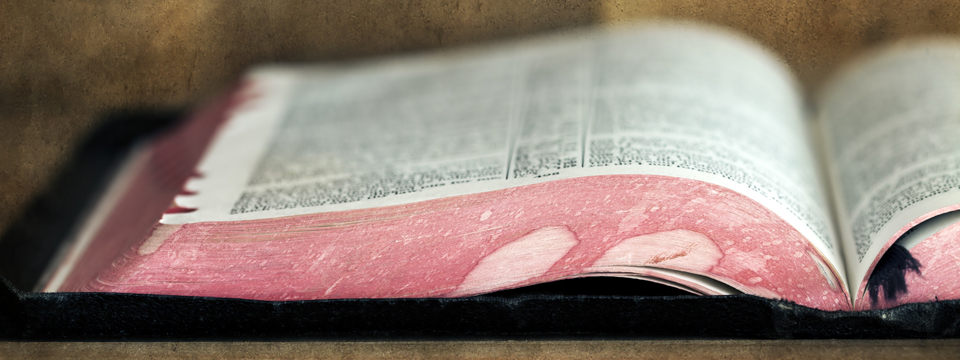I watched the first show of The Bible on the History Channel last night. I was fairly satisfied. Alas, I didn’t get out my Scofield KJV black-cover Bible to analyze every line that I heard, nor every scene that I viewed.
However, one potential popular criticism I could see occurring throughout this five-week series is that they might leave out portions of the individual stories, but to cover the entire 66-book story of God’s Word would be impossible for a 10-hour synopsis. Plus, there are certain parts of Leviticus I don’t know if I could endure watching.
Therefore, I’ll allow some latitude as long as there isn’t blasphemy or a clear steering away from what is told in Scripture in order to promote an alternative message.
The beginning of the show was interesting. It’s basically Noah, his family and a WHOLE bunch of livestock on the Ark, enduring a major storm. Noah recaps the Creation story plus Adam and Eve’s temptation, which leads to sin and corruption of all humanity and God destroying the world through the flood.
The visual effects throughout Noah’s narrative are impressive. The highlight for me was watching the formation of Adam from dirt.
Then comes Abraham’s story with his wife Sarah and his nephew Lot and their journeys and experiences. Lot’s wife is pretty snooty, which means she does an excellent job of making me not feel sorry for her eventual result (I’ll try not spoil it for you. Let’s just say she’s pretty salty).
I did enjoy the two angel “warriors” going through Sodom and thrashing up the Sodomites. This almost had a Matrix feel while I was watching it.
Here’s my first criticism. The portrayal of Sarah when Abraham was going to sacrifice Isaac was weak. I can understand the purpose of this “literary latitude” was to appeal to moms and women in general, but Sarah should not have been a focal point in this part of the story.
This was about Abraham demonstrating his faith in God. Sarah’s hysteria made Abraham look like a crazy man, and this deemphasized God’s purpose.
The final part of the show focused on Moses. This had a few variations from the literal story. Growing up, Moses is portrayed as being a rival to the heir apparent to Pharaoh. Also, Moses is never shown to be the coward he actually was when facing God during the burning bush (another impressive visual effect).
Turning the Nile into blood was an exciting scene, and making the conversion while Pharaoh was in the river was a nice touch. When Pharaoh got out, he reminded me of Darth Maul.
Various scenes are displayed of all the plagues, and they seem to cover them all, from frogs to flies to livestock dying to boils to hail to locusts. Then came one of the most significant scenes of the night… with a commercial break and everything.
Moses reveals to the Israelites the final plague, death of all the firstborns. This causes panic to all the listeners, and then Moses gives them the instructions for the Passover.
What I found interesting about this part was the emphasis that everyone was going to be affected by this death plague. The only distinguishing mark for the Lord to pass over a house’s inhabitants was the animal’s blood displayed on the doorpost. This was an excellent depiction of the Gospel that hopefully viewers would come to understand.
Of course, the parting of the Red Sea was dramatic and effective. From there, Moses obtains the Ten Commandments and eventually gives advice to Joshua who becomes Israel’s new leader, which ends the show. It will be continued next week.
I am sure there are many other opinions on this show, so I welcome your thoughts. Tell me what I left out, or where I am incorrect.
(By the way, I actually don’t own a Scofield KJV black-cover Bible.)
